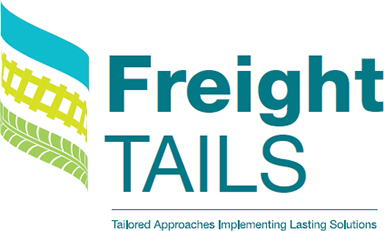Brussels innovates in light of the challenge of urban freight
The Brussels-Capital Region has partnered with eight other European cities in the Freight TAILS project. The objective is to provide innovative logistic solutions to the challenges posed by the rapid growth of urban freight movements. Brussels Mobility will be the region’s linchpin.


The Freight TAILS project was selected following the first call for proposals under the URBACT III Programme and is an initiative of Cross River Partnership, a public-private partnership that is working on the regeneration of a part of Greater London. Freight TAILS wants to tackle the multiple types of nuisance caused by goods transports and has a twofold objective: reduce greenhouse gas emissions caused by freight transports and stimulate the sector’s low carbon development.
Nine cities are participating in the Freight TAILS project: La Rochelle (FR), Maastricht (NL), Parma (IT), Split (HR), Suceava (RO), Gdynia (PL), Umea (SE), Tallinn (EE) and the Brussels-Capital Region (BE). At the end of the project, each of these cities should have a consolidated strategy for implementing urban logistics solutions that are sustainable, innovative and adapted to its specific requirements.
One European project can lead to another!
Freight TAILS is founded on the exchange between cities of expertise and best practices. The Brussels-Capital Region will be represented by Brussels Mobility. This is yet another example of the active participation of this administration of the Brussels public regional service in European projects. Cross River Partnership also asked Brussels Mobility to take part in this Urbact project after working together on LaMiLo (www.lamiloproject.eu). This project aimed at tackling the issue of the last kilometre of the logistics chain, namely distribution in the city.
While Freight TAILS will continue the discussions that were launched in the margin of this project, there is also an obvious thematic link as Brussels Mobility is also interested in the Urbact methodology. The programme has a tried and tested method, which focuses on the involvement and participation of stakeholders. This is a fundamental aspect of urban logistics given the many operators involved.
A local Brussels Urbact group will soon be established in order to ensure that the needs of economic stakeholders, the city’s inhabitants and the various users are met, while focusing on sustainable development. Thanks to the transnational network, the locally gathered knowledge and experiences will then be shared with all the partners, leading to new, shared expertise, which in turn will fuel the local debate.
Brussels solutions: a source of inspiration
To date, Brussels Mobility worked with privileged interlocutors on the European level, who are considered leaders in their field. This new cooperation will allow the region to establish relations with less experienced cities, that can use Brussels practices and test them to see how they can be improved.
The partnership has a total budget of more than €700,000, which it can use to develop an action programme until May 2018, with the support of a dedicated expert. Brussels International, which represents the region in all the Urbact bodies, will closely monitor the development of Freight Tails and will reflect on the achievements.




 Belgian EU Presidency 2024
Belgian EU Presidency 2024